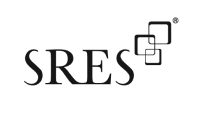Why Halifax’s Proposed 10.5% Property Tax Increase Could Break the Market (and Homeowners)
Monday, Nov 17, 2025

Halifax is proposing a 10.5% property tax increase for 2025, and the impact on homeowners could be significant. From capped assessments to new construction owners carrying more than their share, this tax proposal is raising serious questions about fairness. Here’s what’s really going on—and what Halifax residents deserve to understand. Halifax homeowners are staring down a proposed 10.5% property tax increase, and it’s landing at the worst possible time. As a REALTOR® who lives, works, and pays taxes right here in Halifax, I can’t pretend this is just another line item on a budget sheet. It goes straight to the monthly reality of thousands of Halifax homeowners, landlords, and buyers. People across Nova Scotia are already dealing with higher costs on nearly everything. Groceries, insurance, interest rates, Nova Scotia Power, and Halifax Water rates have all been climbing. Adding a double-digit Halifax property tax increase into that mix doesn’t feel like “future sustainability.” It feels like tightening the vise on the same families and investors we keep telling we want to attract and retain. This isn’t just a technical adjustment. It’s a pressure test on the Halifax real estate market—and on the people who make up this city. According to recent HRM budget direction and media coverage, Halifax city staff are projecting roughly an $88.9-million increase in municipal spending. To cover that, they’re proposing an average increase of about 10.5% on property tax bills, nearly double last year’s 5.2% bump. Where is that money going? Mainly to: No one is arguing we don’t need functioning emergency services, safe streets, and basic infrastructure. But the key question is who is being asked to shoulder the biggest share of this Halifax property tax increase—and whether that share is remotely fair. Right now, the answer points squarely at new buyers and new-construction homeowners. Let’s talk about what this looks like in the real world. A fairly typical new construction home in Bedford, West Bedford, or Clayton Park West can easily face $10,000 to $15,000 per year in property taxes. That’s before we start talking about power, water, insurance, and higher mortgage payments. Meanwhile, an older home on the Halifax Peninsula—potentially with lead service lines, outdated systems, and a long history under the assessment cap—may be paying significantly less in annual taxes, even if its current market value is equal or higher. Same city. Same services. Completely different tax bill. New construction owners already function as the workhorses of the tax base. Throwing a double-digit property tax increase on top of that isn’t just “budgeting.” It’s leaning harder on the people already carrying the heaviest load, while others are still heavily protected by older caps and legacy assessment rules. This is the part of the conversation that makes people uncomfortable—but it’s also the part that matters most if we’re serious about fairness. Property tax caps in Halifax were originally designed to prevent long-time homeowners from being forced out of their homes by sudden spikes in property assessments. The intention was understandable and, at the time, practical. But decades later, the side effects are obvious: If Halifax really wants a tax system that is fair and sustainable, we have to be willing to re-examine the cap policies. Not to punish long-time residents, but to make sure tax policy reflects present value, present needs, and shared responsibility, not just historical timing. I look at the Halifax real estate market numbers every day. We’ve got more inventory than we’ve had in years, and only about 26% of the active listings are actually selling in some segments. Buyers are cautious, sellers are adjusting expectations, and affordability is already tight. Now layer in a 10.5% tax hike on property tax bills. Here’s where the impact shows up: Property taxes don’t exist in a silo. They influence home values, buyer demand, investor confidence, and long-term neighbourhood health. You can’t talk about housing affordability in Halifax and leave property taxes out of the conversation. The Halifax real estate market has already shifted from the frenzy of the pandemic years. We’re not in a freefall, but we are in a more fragile, more price-sensitive, more cautious phase. Buyers have options. Sellers have competition. And the days of anything selling at any price are long gone. In that environment, a double-digit Halifax property tax increase doesn’t just “raise revenue.” It risks: If we’re serious about affordability, growth, and long-term stability, then “just increase taxes again” can’t be the default setting every time the budget gets tight. So what could a smarter approach look like? Without pretending municipal budgeting is simple, here are some principles that make a lot more sense than relying heavily on a blunt property tax increase: Simply put: Halifax needs to stop treating property taxes like a tap we can keep opening wider without checking the pipes underneath. If you want to go deeper into how local numbers shape your real estate decisions, I’ve written other pieces that connect directly to this topic: These articles break down how assessments, absorption rates, and pricing trends interact with policies like this proposed Halifax property tax increase. At The Pike Group, my clients don’t get spin. They get data, context, and a clear-eyed view of what’s happening in the Halifax real estate market—good, bad, and in between. If you’re wondering: then it’s time for a real conversation—not just a headline and a shrug. Reach out to The Pike Group and let’s look at your numbers, your neighbourhood, and your goals. Whether you’re a homeowner, buyer, investor, or planning a move into or out of Halifax, you don’t have to guess your way through this. There are always options; you just need the right information to see them clearly. Article written by Sandra Pike, REALTOR® with The Pike Group, Royal LePage Atlantic, proudly living, working, and paying taxes right here in Halifax.Why Halifax’s Proposed 10.5% Property Tax Increase Could Break the Market (and Homeowners)
What’s Really Behind the 10.5% Property Tax Increase?
New Construction Homeowners: Carrying More Than Their Share
Is It Time to Revisit Property Tax Caps in Halifax?
How the Tax Increase Hits Buyers, Sellers, and Investors
The Bigger Picture: Halifax Needs a Reality Check
Smarter Solutions Than Simply Raising Property Taxes
Related Reading: Understanding the Numbers Behind Your Tax Bill
My Commitment as Your Halifax REALTOR®










.jpg)

